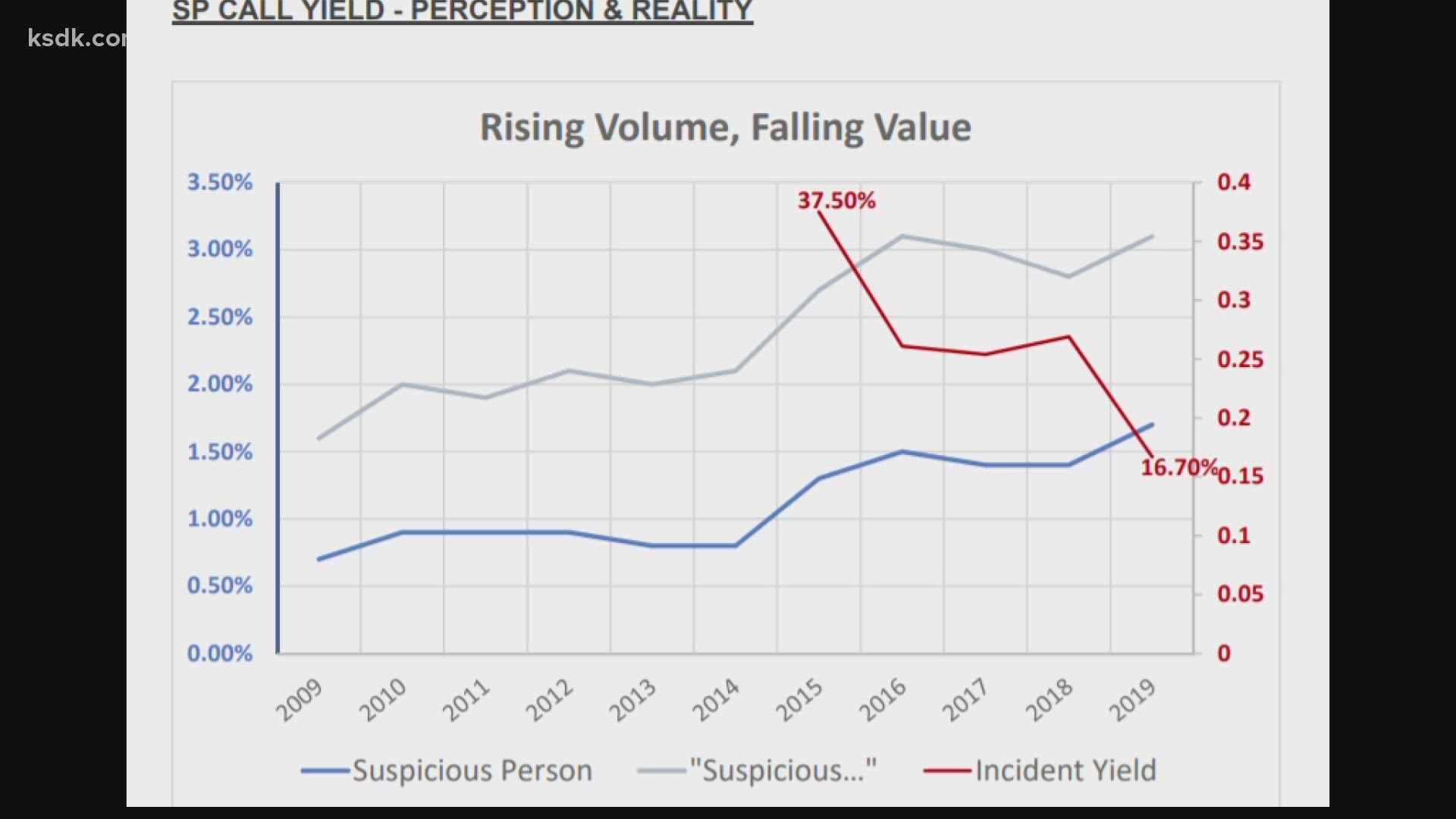CLAYTON, Mo. — An audit prepared for the Clayton Police Department shows suspicious calls are on the rise in Clayton, even though crime levels are down.
The audit was prepared by Candorum Consulting LLC. It was done to make sure the department was using best practices and responding to calls appropriately.
It found suspicious person calls rose from .7% in 2009 to 1.7% last year, with Black people 50% more likely to be the subject described.
"The result was concerning in that approximately 50% of calls did not have enough information to accurately describe what was suspicious about the individual and what was suspicious about the behavior of that person," said Clayton Public Information Officer Jenny Schwartz. "That information is reflective of the county population as a whole , this is a government center so we have folks traveling through our community all day everyday."
Audit below
Some residents say the calls are coming from real concern.
"I don't get a sense of paranoia from our direct neighbors or any of the other folks we spend time with," said Clayton resident Kirk Raybon.
Clayton police confirm some of them are.
"A perfect example would be a call that we responded to yesterday morning, where individuals were seen looking into parked vehicles in a secure garage, that led to the arrest of subjects for stealing from vehicles so that's a perfect example," said Cpl. Schwartz.
According to the review—only 17% result in incident reports, which means the calls are less likely to prevent or solve crimes.
"Try to think it through from the perspective that your lens is not the only lens. If I was in that persons shoes how would I feel if every time i jogged down the street I raised fear in somebody else," said longtime Clayton resident Valerie Bell.
The department said it wants you to call when you see something suspicious or alarming and its asking that you provide more information on what that suspicious activity is.
Cpl. Schwartz says one way they are working through this is by empowering officers to use discretion. That means asking additional questions of dispatchers and call takers and not necessarily approaching every person who is the subject of one of these calls.
MORE LOCAL NEWS

